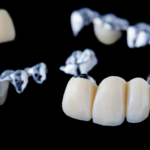
The Connection Between Nutrition and Disease Prevention
It is a well-known fact that our food directly affects our health. But what exactly is the connection between nutrition and disease prevention? In this blog post, we’ll look at how food choices can positively and negatively impact our overall health and some of the essential steps we should take to maintain good physical and mental health.
Nutrition and Disease Prevention
A connection between nutrition and disease prevention has been established through research. Good nutrition is essential to good health and can reduce the risk of developing many chronic diseases. These include obesity, heart disease, stroke, cancer, diabetes, and osteoporosis. Many different factors contribute to good nutrition. Eating various foods from all the food groups (fruits, vegetables, grains, protein foods, and dairy) and choosing foods low in saturated fat and added sugars can help people maintain a healthy weight and improve their overall health. Getting enough physical activity is also crucial for good health.
Making small changes in our eating habits can significantly impact our health. For example, adding more fruits and vegetables to our diet or swapping white bread for whole-wheat bread can make a difference. It’s also important to be mindful of portion sizes: overeating or even healthy foods can lead to weight gain. And remember that no single food offers all the nutrients we need; a variety of foods from all the food groups is necessary for good health.
In the pursuit of a healthier lifestyle, understanding the profound connection between nutrition and disease prevention, particularly concerning heart health, is paramount. The choices we make at the dinner table can significantly impact our cardiovascular well-being. Research consistently highlights the importance of a balanced diet rich in fruits, vegetables, whole grains, and lean proteins to mitigate the risk of heart disease. Incorporating omega-3 fatty acids, found in fatty fish like salmon and flaxseeds, can contribute to lower blood pressure and reduced inflammation. Moreover, minimizing saturated and trans fats, commonly found in processed foods, can play a pivotal role in maintaining optimal heart function. As we embark on this journey toward healthy living, seeking guidance from a knowledgeable professional, such as a trusted cardiologist in Newton, NJ (or elsewhere), can provide invaluable insights tailored to individual needs and health goals.
Factors That Influence Nutritional Status
Many factors can influence a person’s nutritional status. Some elements are within a person’s control, while others are not.
Diet is an essential factor in determining a person’s nutritional status. The type and amount of food a person eats will affect their nutrient intake and, as a result, their nutritional status. For example, someone who consumes a diet high in processed foods and low in fruits and vegetables will likely have a lower intake of vitamins and minerals than someone who drinks a diet that includes more fresh foods.
Other factors affecting diet include culture, religion, and economic status. For example, some cultures or beliefs may have dietary restrictions that impact the types of foods available to individuals. In addition, people with limited economic resources may need help accessing nutritious foods or may be more likely to purchase less expensive, less healthy options.
Lifestyle choices can also influence nutritional status. People who smoke cigarettes or use other tobacco products tend to have lower intakes of certain nutrients, including vitamin C and carotenoids. Alcohol consumption can also impact nutrient intake and produce specific vitamin and mineral deficiencies.
Finally, health conditions can influence nutrition by affecting appetite or interfering with the body’s ability to absorb nutrients from food. For example, cancer or other chronic illnesses may cause weight loss or anorexia. At the same time, gastrointestinal conditions like celiac disease can prevent the absorption of nutrients from food.
The Role of Diet in Disease Prevention
A healthy diet is crucial to disease prevention. Eating various nutrient-rich foods helps the body function at its best and reduces the risk of many chronic diseases. Most Americans need to eat more fruits, vegetables, whole grains, or dairy products. These foods are packed with vitamins, minerals, fiber, and other essential nutrients for good health. To ensure we get enough of these critical nutrients, include various foods daily. In addition to eating a healthy diet, maintaining a healthy weight is also crucial for disease prevention. Being overweight or obese increases the risk for many chronic diseases, including heart disease, stroke, type 2 diabetes, and some types of cancer. To maintain a healthy weight, balance the calories one consumes from food and beverages with the calories one burns through physical activity. And avoid crash diets or extreme changes in eating habits; instead, make small changes that one can stick with over time. Finally, limit one’s intake of processed and fried foods and sugary drinks. These foods and beverages are often high in calories but low in nutrients. They are not only bad for our guts, but are also harmful in nature to our teeth. Sugary foods have the potential to corrode our teeth, a situation that necessarily requires tending by a dentist. A dentist will likely suggest getting mini dental implants in tukwila wa (or wherever you are based) to restore your teeth’s health. He will also advise you to cut back on sugary foods and increase your intake of fruits, vegetables, and whole grains. To avoid getting into so much hassle, it is best that you focus on whole foods full of vitamins, minerals, fiber, and other essential nutrients.
The Therapeutic Benefits of Nutrition
A healthy diet is essential for maintaining a robust immune system. Proper nutrition provides the body with the vitamins, minerals, and antioxidants needed to fight infection. Eating a nutritious diet has reduced the risk of developing chronic diseases such as heart disease, stroke, cancer, and type 2 diabetes.
Additionally, good nutrition is vital for managing existing chronic conditions. For example, people with diabetes must carefully monitor their blood sugar levels and consume foods to help control them. Nutrition can also play a role in managing other chronic conditions such as high blood pressure, high cholesterol, and osteoporosis.
Making smart food choices is not always easy, but it’s worth the effort. By eating various nutrient-rich foods, we can be sure we’re getting all the nutrients our body needs to stay healthy and function at its best.
Tips for Eating a Healthy Diet
A healthy diet is essential for preventing many diseases. Here are some tips for eating a healthy diet:
- Eat plenty of fruits and vegetables. Aim for at least five servings per day.
- Choose whole grain foods over refined grain foods.
- Include lean protein sources such as fish, poultry, beans, and nuts.
- Limit saturated and trans fats, as well as added sugars.
- Drink plenty of water and limit sugary drinks.
These simple tips can help prevent many diseases and enjoy a healthier lifestyle.
Eat Right and Live a Healthy Life
Proper nutrition is essential for reducing our risk of chronic diseases. It is important to figure out the foods that work best for us individually because each person has different nutritional needs. People who fail to maintain healthy diets should consider visiting a London nutrition clinic, or one closer to them to learn how to eat well and maintain a balanced diet.
A balanced diet should consist of fresh fruits, vegetables, and whole grains. It can help us stay healthy by providing the nutrients our bodies need to function at their best. Additionally, limiting processed foods and added sugars will improve overall health and reduce the likelihood of developing issues such as diabetes or heart disease in the future. With proper nutrition crucial for disease prevention, it’s always early enough to start making healthier food choices!




